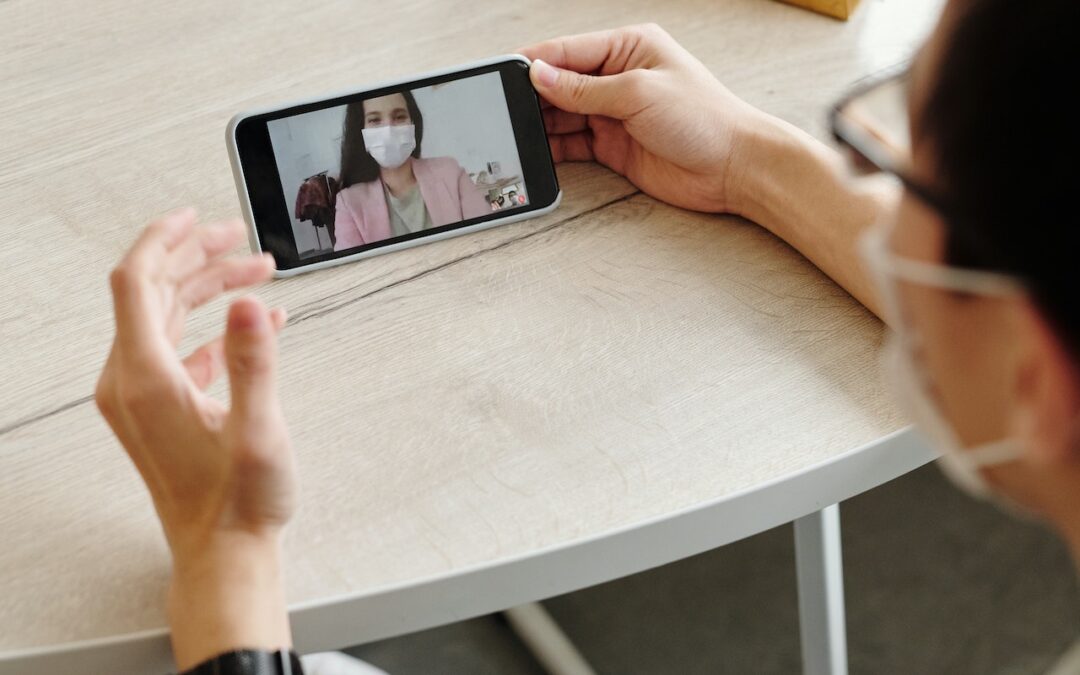A recent survey that was conducted on over 1,000 registered physicians who provided telehealth care for patients with opioid addiction during the COVID pandemic has revealed that a significant majority are in favor of continuing to offer telehealth services on a permanent basis.
The results of the study, which was recently published in The American Journal of Managed Care, show that medical practitioners fully support using telehealth technologies for treating patients with opioid use disorder. These findings are important considering that policymakers are currently busy deliberating whether to temporarily extend existing telehealth regulations which were established during COVID-19, or whether to make telehealth services a permanent option for those seeking online medical care.
“Recent exposure to telehealth due to the COVID-19 pandemic has promoted the perspective among the physicians surveyed that it is a viable and effective treatment option for patients,” said Tamara Beetham, MPH, a PhD student in health policy and management at Yale School of Public Health (YSPH) and lead author of the study. “Findings like these could have major implications for the future of telehealth regulation. Continued flexibility would allow more individuals to access life-saving treatment.”
According to the U.S. Centers for Disease Control and Prevention, 107,622 people died of drug overdose in the United States in 2021, an increase of 15% from 2020. Physicians often treat patients with opioid addiction with buprenorphine, which reduces their risk of overdosing. But patients need to follow up with their healthcare providers regularly as part of their ongoing treatment.
Strict COVID-19 health protocols such as social distancing that were enforced during the height of the pandemic to reduce the risk of infections made it difficult for patients to access their medical prescriptions or attend the necessary follow-up visits. To make medical care more accessible during the pandemic, telehealth regulations were relaxed, enabling medical practitioners to consult with their patients virtually.
For the study, scientists from the Yale School of Public Health (YSPH) surveyed 1,141 physicians registered for public service who provide treatment for opioid addiction. The survey included questions regarding how practitioners currently and retrospectively used telehealth, and if their perceptions regarding the effectiveness of telehealth or their preferences regarding telehealth policy had changed as a result of the COVID pandemic.
A large number of the doctors interviewed made use of telehealth technologies to consult with their patients for the first time at the start of the COVID pandemic, with the number having used telehealth services rising from less than a third prior to the pandemic to two-thirds. More than half of the doctors interviewed found telehealth visits were more effective than what they had expected, while only one out of six respondents found it less effective than they had expected. Six out of seven doctors interviewed supported making the temporary more flexible telehealth regulations permanent, while more than three-quarters of the doctors interviewed indicated they would continue offering telehealth visits once the pandemic ended if regulations permitted them to do so.
Many of the respondents had little to no prior experience using telehealth to treat opioid use disorder prior to COVID-19 due to tight regulatory restrictions governing telehealth. When these restrictions were subsequently relaxed during the pandemic, their exposure to telehealth increased. The study’s findings suggest their recent exposure to telehealth care has changed their perception of telehealth, with an overwhelming number of respondents now considering telehealth an effective and viable form of treatment for opioid use disorder that they would like to continue using in future.
According to the authors, as such a large percentage of physicians acknowledged that telehealth was an effective form of treatment for opioid addiction after making use of it and supported proposed legislation to permanently loosen regulatory restrictions on telehealth, suggesting this new method of providing medical care could hold significant importance for treating patients moving forward.
The researchers acknowledge that this study is limited in its scope as it only represents the opinions of the physicians surveyed and does not necessarily represent the opinions of all physicians that treat opioid addiction.
According to Susan Busch, a professor of Public Health Policy at YSPH and senior author of the paper, the study’s findings suggest that further investigation is required to gain a clearer understanding of the viewpoints of medical practitioners with regard to telehealth flexibility.
Telehealth removes barriers that often prevent people with opioid use disorder from getting access to effective medical treatment. Left untreated, patients with opioid use disorder face a higher mortality risk. It is therefore critical that people with opioid addiction be able to access evidence-based treatments, especially given that unpredictable, illegally manufactured opioids are the driving cause of fatal overdoses. Having access to telehealth care for opioid use disorder can remove barriers to the required medical treatment which could ultimately reduce fatal overdoses and save lives, Beetham said.

